A lot has been written of late about monogamy and monogamous relationships. The main takeaway is this: Just because monogamy has always been the norm, does not necessarily mean it is the only acceptable way going forward. And while there may be societal, legal, and even financial reasons to stick to monogamy, there are other ways to be romantically involved with another person (or persons).
The definition of a monogamous relationship is a partnership with one person at a time. But what does it mean to be exclusive in a relationship or to be polyamorous? Let’s find out with insights from psychologist Nandita Rambhia (MSc, Psychology), who specializes in CBT, REBT, and couple’s counseling.
She says, “A monogamous relationship may be either sexual or romantic, but usually involves both. In other words, it has both emotional and sexual exclusivity.” Exclusive relationship rules (or monogamous relationship rules) state that the partners will be involved exclusively with each other and no one else. The involvement with a single partner will remain for the duration of the relationship.
What Is Monogamy Or A Monogamous Relationship?
Table of Contents
This wasn’t always the case, but the institution of marriage is now built on the principles of a traditional monogamous relationship and sexual fidelity to just one partner. Simply put, this means a monogamous relationship is based on a set of exclusive relationship rules. But what does it mean to be exclusive in a relationship? A monogamous person will stay loyal to only one person. Loyalty in a relationship means no romantic or sexual involvement with anyone else. Monogamous people also get more legal benefits than polyamorous people do, so it’s not just about loyalty.
However, many people have difficulty staying in a relationship with only one person, leading to higher incidences of separation, breakups, and divorce. This does not necessarily mean that these people are not monogamous, even if they have been through many marriages. When a person has several spouses in a lifetime, but only one spouse at a time, it is called serial monogamy, and the person is a serial monogamist.
What happens when you’re not monogamous?
Problems in a marriage may occur when one partner falls in love with a third person. But can you be in love with two people? The question must be considered without any moral implications. Many married people fall in love outside their marriage while still being in love with their partners. It may be purely platonic but could also be physical. If this is done with the consent of both partners, then it becomes a polyamorous relationship, one where one person is in a relationship with more than one person.
Yes, being in love with multiple partners at once is possible. Polygamy, on the other hand, is when you can marry more than one person. The whole debate about monogamous vs. polygamous relationships is contentious mainly because the whole institution of marriage is based on monogamous principles and the so-called morality attached to them.
Does monogamy work in the long term? Various studies have shown that while monogamy is common in various cultures because of legalities and conditioning, it is an anomaly in the animal kingdom. Amongst mammals, barely 5% of species are socially monogamous. A school of thought says that humans are not meant to be monogamous. Proponents often quote animal studies that show that most other mammals are not monogamous.
But the fact remains that humans have been mostly monogamous from a societal and legal point of view for the last thousand years at least. Can men be monogamous? — Some people ask. The truth about monogamy and having a long-term relationship with only one person, regardless of gender, is that it takes a lot of hard work and commitment. But being in a polyamorous setup requires an equal amount of effort too.
Related Reading: 12 Best Polyamorous Dating Sites For 2022
Key Differences Between Monogamy And Ethical Non-Monogamy (ENM)
What is an ENM relationship? At the outset, let us be clear that when we refer to non-monogamous relationships, we discuss ethical non-monogamy. We’re not talking about cheating. Cheating involves breaking agreements in your relationship, whereas ethical non-monogamy is consensual.
Monogamy implies exclusivity between partners. Ethical non-monogamy, on the other hand, is an umbrella term that covers a range of non-conventional relationships involving having two or multiple partners simultaneously. Nandita says, “In ethical non-monogamy, a person has the full consent of their partner to engage in a sexual or romantic relationship outside their relationship with one or more individuals. Polyamory is similar to non-monogamy but consists of several types of relationships.
“In polyamory, too, the partner’s consent is required, and the individual can have a relationship with more than one person.” Even if one person is monogamous in a relationship and the other is polyamorous (a poly-monogamous relationship), deciding to have a non-exclusive relationship or multiple relationships is completely consensual.
In conclusion, in an ENM relationship, either or both partners may engage in an outside relationship – but with complete openness, honesty, love, respect, and conversations around boundaries.
| MONOGAMY | ETHICAL NON-MONOGAMY |
|---|---|
| Monogamous relationship rules state that the relationship between both partners is exclusive; exclusivity meaning in a relationship is that the relationship is with just one person | The relationship between both partners is non-exclusive. Polyamorous partners talk about what type of connections they wish to pursue |
| A monogamous couple will not consent to either partner having a relationship with another person | Polyamorous people can date both monogamous and polyamorous people |
| Most monogamous people prefer to date monogamous folks, but some can date polyamorous people too | A relationship with a third person is not considered infidelity or cheating since it is consensual. Polyamorous people are also loyal to their partners |
| Monogamous couples are loyal to each other – Loyal in a relationship means there will ideally be no cheating or infidelity | It’s understood that an individual can explore their happiness the way they see fit, and the way it’s healthy for everyone involved |
| They are expected to derive romantic or sexual fulfillment from one person |
Monogamous Vs. Polyamorous — 11 Questions To Help You Find Out
The concept of a monogamous relationship has been drilled into us from our childhood. Traditionally, everything we saw and experienced – our families, communities, advertisements, and television programs – all showed the basis of family life as a loving monogamous couple in a committed and exclusive relationship. The whole concept of happiness, stability, and contentment was based on the idea of a long-term committed relationship with the same person. Marriage vows and traditional committed relationship rules would define long-term relationships with phrases such as “the one” and “till death do us part.”
During a relationship or marriage, a monogamous couple promises faithfulness until the end. If one partner sleeps with another person, the trust is broken and usually ends or seriously harms the relationship. This is the common monogamous relationship psychology. But there’s been an erosion in the institution of marriage or how it’s defined. The concept of marriage as a lifelong commitment with only one partner is slowly changing. There is a growing school of thought that man is not a monogamous animal and monogamy is not the natural state of things.
So, can men be monogamous? Are women more open to non-monogamy? We ask Nandita. She says, “Humans are the most evolved beings on the planet and have evolved to a point where we can be comfortable in having either a monogamous relationship or a non-monogamous relationship. It is an individual decision.”
Polyamory is wrongfully considered an element of Western culture. The interest in this relationship style is growing everywhere. Here’s a recap before we get to the important question ahead: Polyamory involves having a committed or open relationship with more than just one person, i.e. having more than one romantic partner and/or sexual partner at a time. Ethical non-monogamy is just one aspect of polyamory. Also, a polyamorous relationship can be between people of the same or different sexual orientations. So how do you decide if monogamy is right for you?
Related Reading: What Is Consent In Dating?
How do I know if I want a monogamous relationship?
Here are 11 questions you can ask yourself that will help you understand monogamous relationship psychology, and compare it to polyamorous relationship psychology:

1. Do you want to start a family?
- You might subscribe to the traditional thought process that if you want children, you need to be in a committed monogamous relationship (ideally a marriage)
- Or you might want to challenge this deep-rooted belief and look forward to a home with more than one loving partner (and parent to your child). For you, that may be the ideal place to start a family
2. Do you wish to have more romantic relationships in your life?
- If this is the case, then maybe monogamy is not for you, and you may need to honor your need for dating multiple people
- Or are you satisfied with the idea of a single-life partner? The idea of multiple romantic relationships may not be something you look forward to, making monogamy an obvious alternative for you
3. Do you consider yourself a jealous person?
- If you feel jealous when your partner spends time with other people, and if that’s the major reason for you to choose monogamy, then exclusivity may be the more sensible choice for you
- Polyamorous people can also experience jealousy. But they nurture the ability to talk openly about conflicting feelings, introspect, and ask for reassurance if needed
4. Are you bored or sexually dissatisfied in your existing relationship?
- It is natural to be bored or sexually dissatisfied in a marriage or a monogamous relationship sometimes, but that doesn’t necessarily mean that a monogamous relationship is not for you. There are ways to cure boredom and enhance sexual satisfaction. In fact, it’s highly recommended not to enter a polyamorous relationship if an intimacy fix is what you’re looking for
- If you are convinced of your love for your partner and are satisfied sexually, but you still wish to explore romantic or sexual connections beyond your relationship, then you may have to question whether monogamy is the right choice for you
5. Are you okay with sharing the time and attention of your partner?
- If you prefer sexual exclusivity and wish to be prioritized by your partner at all (or most of the) times, it probably indicates that monogamy is the right choice for you. People in monogamous relationships (as a rule) are not open to the idea of sharing their partner’s attention, either romantically or sexually
- Consensual polyamory implies that you are okay with sharing your time, heart, and life with another person and don’t mind your partner doing the same. You may even prefer to be in a relationship with someone who’s polyamorous as well
6. Do you need to conform to societal norms?
- Compulsory monogamy is the norm in our society, and if you are the type who is worried about what society thinks, then monogamy may be your thing
- If you have never been one to care for societal rules and have never been a conformist, then maybe monogamy is not for you
Related Reading: No-Labels Relationship: Does A Relationship Without Labels Work?
7. Do you prefer casual dating to a long-term commitment?
- If you want exclusivity and also tend to form strong attachments with people, then a monogamous relationship may be an easier option for you. This traditional choice of life partners can suit many who prefer to invest their time and emotions in one person only
- Polyamorous people also form strong, intimate, and committed connections. However, there are many in the community who prefer casual relationships and don’t align with monogamy. If that’s the case with you, then you should explore polyamory first
8. Are you comfortable with emotional exclusivity and feel safe being with one person?
- If this is true, then a monogamous relationship is best for you. Being in a monogamous relationship can provide you with the security you crave and would probably be more emotionally fulfilling for you
- On the other hand, if the idea of an exclusive relationship is not something you subscribe to and you are attracted to the idea of multiple partners, where ideas of safety and security are revisited and revised according to your needs, polyamory could be an option for you
9. Is monogamy a part of your religion or culture?
- If monogamy is a part of your religion and culture and you are a conformist, then monogamy is probably your best way forward
- Even if monogamy is the accepted norm in your religion and culture, you can choose to be polyamorous or consider beginning a polyamorous relationship. Being open about it or not is entirely up to you
10. Are you afraid of growing old alone?
Once again, there is a traditional consensus that one must marry (or choose a monogamous relationship) for companionship, especially in old age. A committed, long-term relationship is believed to be the best way to face your fear of growing old alone. However, with the increase in popularity of alternative relationship models, this concern is addressed fully. In fact, polyamorous communities are gaining popularity to face this very real fear. Both relationship styles are valid and can offer support for old age.
11. Are you mentally inclined toward monogamy? Do you tell yourself, “I want a monogamous relationship”?
- Many people are mentally wired to believe that they need only one partner for the rest of their lives. Whatever the reason – values, emotional capacity, society, conditioning, trauma – for many, monogamy may be the only choice they are comfortable with
- If you don’t feel inclined toward monogamy, maybe you should consider ethical non-monogamy as a way forward, at least for some time. Just be honest with your partners about the fact that this is new for you
Answering these questions honestly will give you a better insight into your personality. They will also tell you whether or not you are inclined toward monogamy. Remember, just because your experience with serial monogamy has ended in broken relationships doesn’t mean monogamy isn’t meant for you. On the other hand, if you find yourself attracted to multiple people simultaneously and can find time for them equitably, then you should consider a non-monogamous relationship.
Related Reading: No Strings Attached – Go Into It With Eyes Wide Open And Define Your Terms
How To Transition From Monogamy To Ethically Non-Monogamous Relationships
We now know that in ethical non-monogamy (ENM) or consensual non-monogamy (CNM), everyone involved is aware of and consents to all aspects of the dynamic. The term ‘ethically non-monogamous’ covers many types of relationships including polyamory, open relationships, swinging, relationship anarchy, and polyfidelity.
When asked about her thoughts on open relationships and polyamory, Nandita said, “Everyone is entitled to their own decision in this regard. The foundations of ethical non-monogamy lie in the 3 Cs: Communication, consideration, and consent. It means that though your partner’s consent is ongoing, it is also discussed whenever you enter a new dynamic with someone. While transitioning to ENM, it is important to be honest with each other, be open about your needs and wants, and be very respectful toward each other.
“The transition process can be smoothened if you have a transparent and compassionate approach to the relationship so that you do not hurt your partner emotionally or mentally. Getting to this stage requires the couple’s maturity and experience.”
So how does one make the transition from monogamy to ethical non-monogamy?
1. Set the ground rules
While there are no universal rules for ethical non-monogamy, you and your partner will have to be on the same page when it comes to deciding what is and what is not acceptable. A consensual decision is an ethical one. You may decide on whether you want a committed or casual relationship, a romantic or sexual relationship, a poly-monogamous one, or an open relationship. It is important to set the parameters for your relationship at the outset to minimize the chances of a misunderstanding at a later date.
2. Honesty is the key to a healthy relationship
The most important ingredient of an ethical non-monogamous relationship is honesty. You have to be very clear about your expectations and limits while defining the parameters of your relationship. You must also be comfortable with openly sharing your thoughts and feelings, especially your biases, sexual desires, fears, and insecurities.
3. Be mindful of your partners’ feelings
Ethical non-monogamy requires a lot of care and concern for your partners’ feelings. Nandita states, “A smooth transition will occur if you do not hurt them mentally and emotionally. Keep checking in. Reassure them when required. The basics of any relationship do not change if it is to succeed.
“Things to avoid doing are lying, pressurizing your partners to do things they are uncomfortable with, and manipulating your partners to get your own way. You have to consult your partners and be on the same page as them before making any decision that will affect them. Enthusiastic consent is the key.”
4. Your non-monogamous relationship can include a primary partner
Your relationship structure can include your primary partner. This is known as a hierarchical relationship. In this type of relationship structure, the partners agree to prioritize commitment to one partner over others. For example, you may choose your spouse as the primary partner and your other partner as the secondary one.
5. You may prefer to have a non-hierarchical relationship structure
Ethical non-monogamy can also include relationships where everyone is treated equally, and no one partner is prioritized over the other. A type of non-monogamous relationship includes a ‘triad,’ where three people are romantically involved. Or a ‘vee,’ in which one person has two separate partners. Take your time, but decide what kind of relationship structure you seek, even if the answer changes later.
6. Ups and downs are normal
Any relationship, whether monogamous or non-monogamous, will have its share of ups and downs. Conflicts, challenges, happiness, sadness, and all the emotions we experience are part of life. Do not be surprised to experience various negative and enormously positive emotions like jealousy, fear, worry, insecurity, happiness, compersion, support, stability, and freedom.
Related Reading: The Common Reasons Why Polyamory Doesn’t Work
7. Expect to feel jealous at times
While you may not consider yourself the jealous sort, it is perfectly normal to feel jealous from time to time. This is only natural, and the best way to deal with these feelings is, to be honest about them and communicate freely with your partners. See which one of your unmet needs and find a way to fulfill it.

8. Introspect and learn
Honest introspection can help you connect with your feelings. Being aware of your feelings is important if you are to make the transition from monogamy to ethical non-monogamy smoothly. The process can be difficult as most of us are programmed for monogamy. Changing that mindset can be a slow and gradual process, so do not try and rush it. Learn as much as possible, follow polyamory communities, read books about it, and keep unlearning your biases.
Key Pointers
- A monogamous relationship is an exclusive relationship with a single partner
- If you come from a culture where monogamy is the norm and are mentally inclined to the idea of one person, then monogamy is probably right for you
- Ethical non-monogamy is a relationship where partners have multiple, consensual relationships with pre-defined boundaries
- Ethical non-monogamy requires you to talk about insecurities and jealousies in a healthy way. In this relationship style, you might find yourself attracted to multiple people, you’re not entitled to your partner, and are a non-conformist
All long-term relationships take a lot of work and commitment. Everyone has the right to choose the kind of relationship they want, be it a monogamous one or a non-monogamous one. The relationship can grow with honesty, open-mindedness, trust, and respect among partners. The relationship’s success will depend upon the individuals’ personality traits and ability to communicate compassionately with each other.
FAQs
A poly relationship or polyamory is a committed relationship involving two or more people. It means having multiple romantic partners at once or an open relationship where each partner is permitted to choose partners of their choice.
What most people call monogamy is the physical type where both partners have a physical relationship only with each other. Other types of monogamy are social and emotional monogamy.
These are called mono-poly relationships and can be difficult to maintain if there’s been no learning of polyamory, or unlearning of monogamous conditioning, from either partner. These relationships work well if the boundaries are well-established with honest and open communication.
15 Warning Traits Of A Serial Cheater – Don’t Be His Next Victim
18 Promising Tips To Survive Infidelity In A Relationship — For The Betrayer And The Betrayed
Your contribution does not constitute a charitable donation. It will allow Bonobology to continue bringing you new and up-to-date information in our pursuit of helping anyone in the world to learn how to do anything.





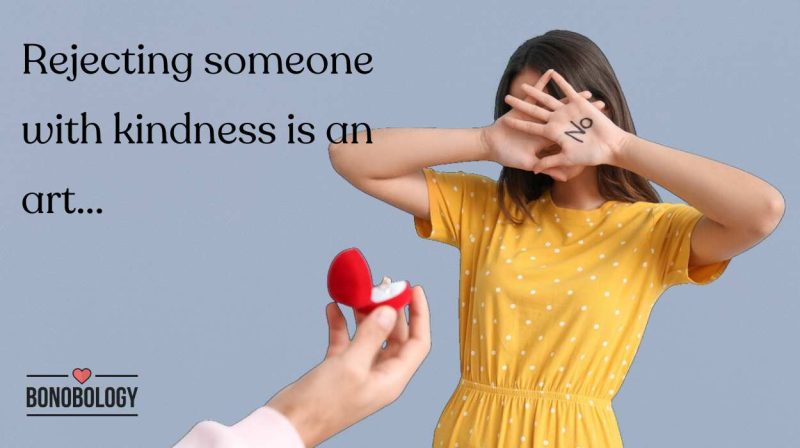
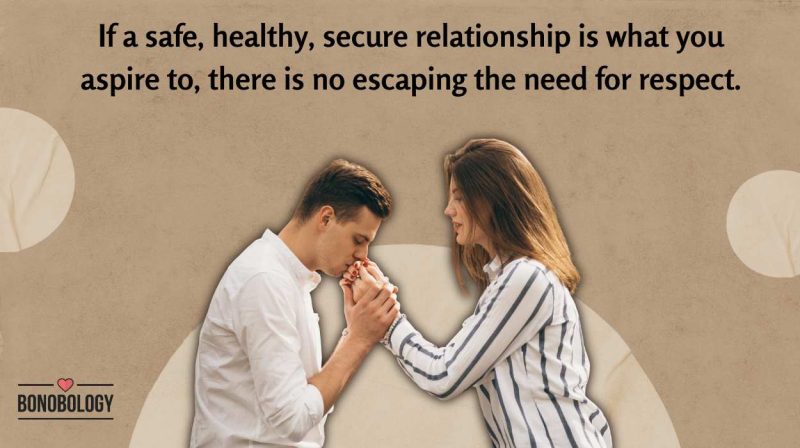

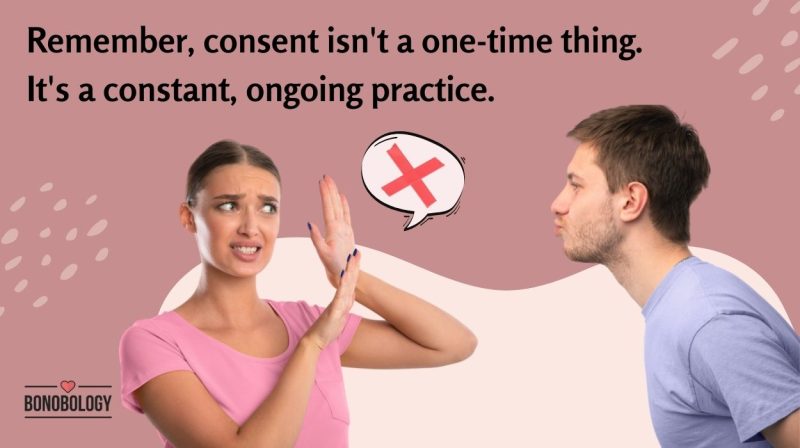

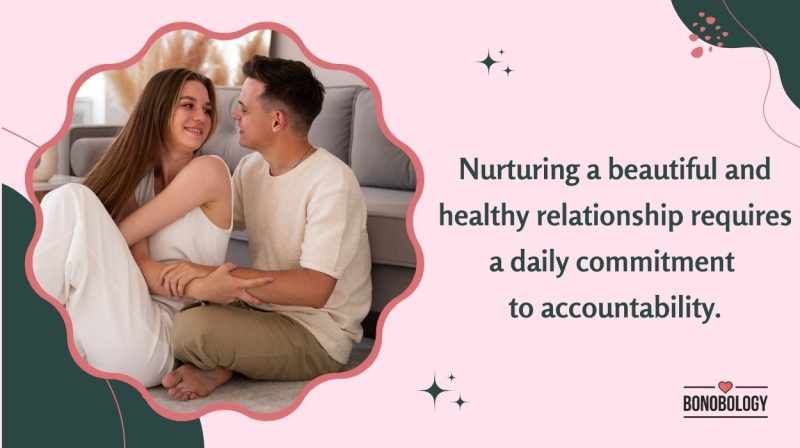

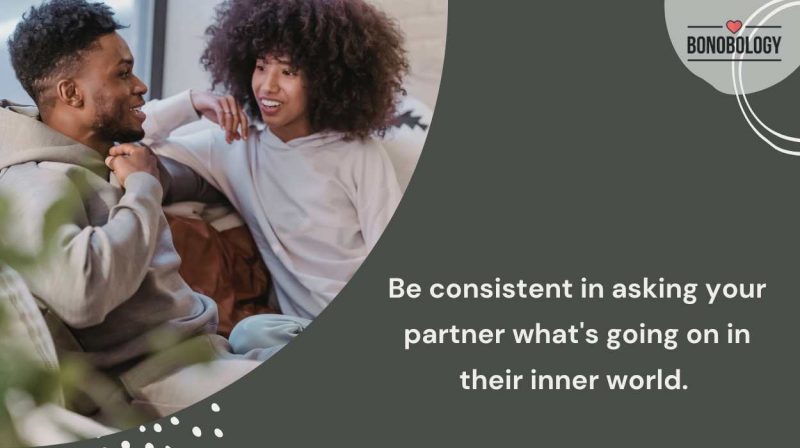



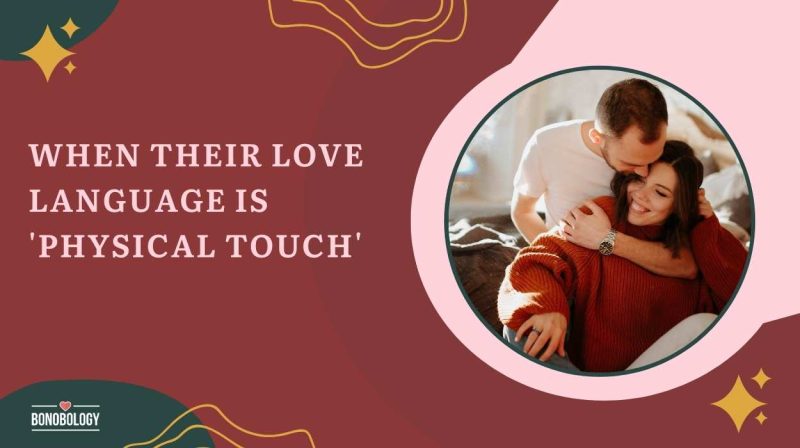
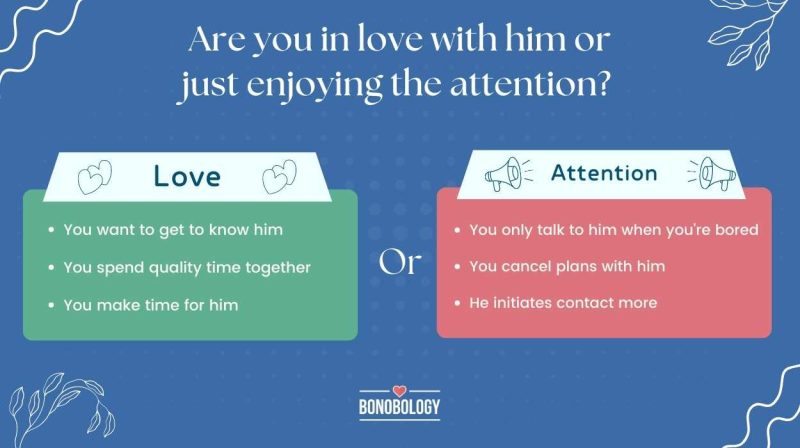
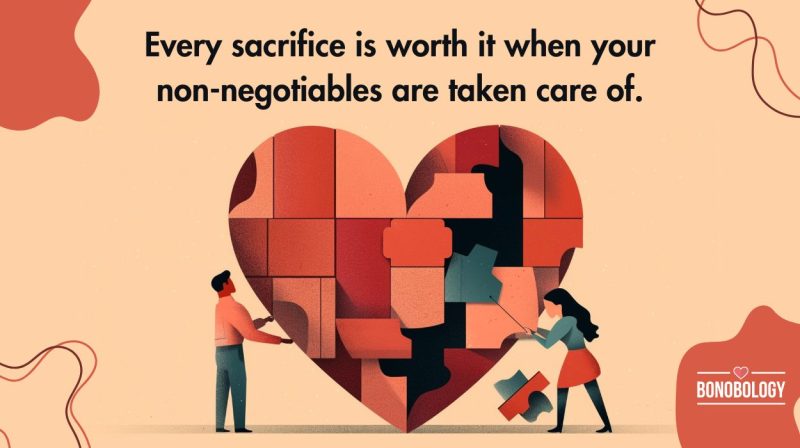

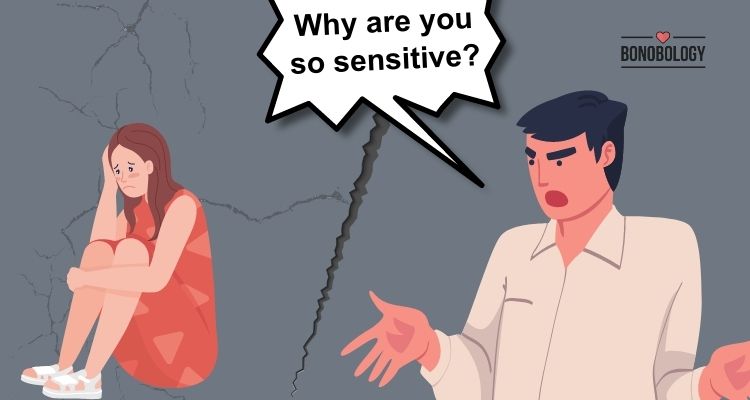


Featured
6 Tips for Helping Your Partner Quit Smoking in Their 50s
How He Treats You Is How He Feels About You — Is It True?
How To Let Someone Down Easy With Kindness And Grace — 13 Tips
How To Show Respect In A Relationship — 9 Ways
The Pitfalls Of Nice Guy Syndrome: How It Affects Relationships
Navigating The Complexities Of Consent In Modern Relationships
11 Ways To Deal With A Sexually Demanding Husband
Accountability In Relationships – Meaning, Importance, And Ways To Practice
How To Apologize To Your Boyfriend: 15 Ways
10 Thought-Provoking Relationship Check-In Questions for Deeper Connection
10 Signs You Are In A Truly Stable Relationship (Even If You Feel Otherwise)
7 Subtle Signs Your Partner is Quiet Quitting Your Relationship
Secure Relationships – What Are They And What Do They Look Like?
Physical Touch Love Language: What It Means With Examples
Do I Like Him Or The Attention? Ways To Find Out The Truth
17 Non-Negotiables In Relationships You Must Never Compromise On
15 Ways To Solve Relationship Problems Without Breaking Up
9 Common Narcissist Gaslighting Examples We Hope You Never Hear
The Most Important 7 Qualities Of A Healthy Relationship
15 Early Signs He Is A Player And Isn’t Serious About You